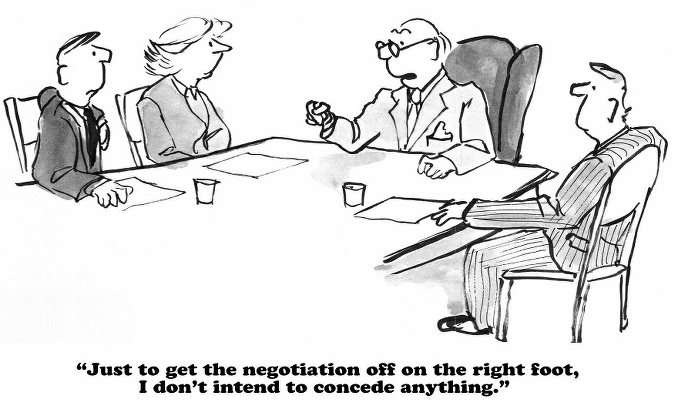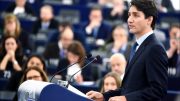Sources in trade diplomacy have been asked by consultants hired by the British Government to search internationally for experienced trade negotiators, Chief-Exec.com has been told.
As the hard realities of the consequences of Brexit begin to overshadow the initial shock and awe of the decision, it has become clear that Britain is poorly prepared for the challenge of finding its own place in the global trading system.
While Prime Minister Theresa May talks loftily of Britain becoming the global leader in trade liberalisation once it is unshackled from the European Union (EU), hard-nosed trade experts – especially trade diplomats with long experience of the complexities of trade diplomacy – are warning that Britain appears to have little collective understanding of what it will lose when it leaves the European single market and how difficult it will be to replace.
At the same time strategic analysts are warning that Britain risks becoming a mendicant nation because its need to find new trading partners could seriously weaken its bargaining position in future trade negotiations.
The view seemed to be that Britain was being shackled by the European Union and now it can leap free and find like-minded partners who will help restore it to being the great trading nation it once was. I think that will come to be seen as a romantic myth
Analysts say that the risks have been highlighted by the blow-back from Prime Minister May’s meeting with United States’ President Donald Trump and the political damage she may have suffered from being reluctant to criticise his ban on immigration from seven Muslim-majority countries.
They say that it would be very damaging if Britain is seen as putting its self-interested need for a trade deal with the US over its obligations as a good international citizen.
Already, in a sign of the weakness of Britain’s position as it begins to look for a new trade architecture to replace the European single market, there is incredulity among seasoned trade policy insiders that Britain has conceded that it will have to start from scratch to build its own trade negotiation expertise.
Sources in trade diplomacy told Chief-Exec.com that they have been asked by consultants hired by the British Government to search internationally to help find experienced trade negotiators who would be willing to assist Britain build the expertise it will need to help secure the free trade agreements (FTAs) it will need to achieve the Prime Minister’s goal.
Britain has no trade negotiating capacity because all of the trade deals, that it is a party to, have been negotiated by Brussels-based EU officials.
“As far as I can tell the difficulties that Britain faces in going it alone on trade got very little attention in the Brexit debate and I don’t think there was much of an understanding of the great leap into the unknown Britain has taken on trade,” a veteran trade diplomat with long experience of Geneva trade negotiations told Chief-Exec.com.
The source, who cannot be named because he is likely to be involved in negotiations with Britain, added: “The view seemed to be that Britain was being shackled by the European Union and now it can leap free and find like-minded partners who will help restore it to being the great trading nation it once was. I think that will come to be seen as a romantic myth”.
Another source involved in trade diplomacy said that, while he believed Britain’s standing as an open and liberal-minded nation would help it in finding new trade agreement partners, there appeared to be an inflated view in Britain of its potential bargaining power.
“Britain is a medium trading nation. It has great leverage as part of the EU but it will find that its leverage will be severely diminished when it is on its own.”
A former Australian Trade Minister who was involved in the complex negotiations that led to the Trans-Pacific Partnership (TPP) – from which Donald Trump has just withdrawn the United States – said that it was clear that the UK was looking to the US for a quick and generous trade deal.
Dr Craig Emerson told Chief-Exec.com that, from his experience, the Trump administration would face huge pressures from the powerful American corporate sector to make sure that US business interests were protected in any negotiations with the US.
In particular, he said Republican Party-supporting US business would demand strong Investor-to-State Dispute Settlement (ISDS) provisions in any FTA with the UK.
These provisions would allow US companies to seek compensation from Britain for any decisions of the British government that adversely affected their businesses – seen by many critics as an unacceptable undermining of national sovereignty.
Dr Emerson said this had been a major issue in the TPP negotiations. In the end the US had agreed to include in the TPP exemptions from ISDS action for sensitive areas such as plain packaging for tobacco products and cheap prices for pharmaceutical products.
“But the Americans insisted on including an ‘except in rare circumstances’ qualification to the ISDS provisions which created a loophole you could drive a truck through,” Dr Emerson said. “I cannot imagine they would settle for anything less in an FTA with the UK.”
Britain is a medium trading nation. It has great leverage as part of the EU but it will find that its leverage will be severely diminished when it is on its own
Trade experts also said that, even with President Donald Trump signalling that he wanted to do a trade deal with the UK that helped ensure Brexit was a success, there were complex legal requirements that would make a “quick and easy” trade deal extremely difficult to achieve.
For example, Britain could not negotiate any free trade agreement until it complied with World Trade Organisation rules. Britain, as a member of the EU, currently complies with WTO rules that require member countries to sign legally binding commitments to WTO rules.
But as an independent country outside the EU, it would have to make its own commitments that could require it to get the agreement of almost 60 countries with which the EU has trade agreements. This could take years.
The United States, for example, refuses to negotiate on trade agreements with any country that does not have legally binding commitments to the WTO schedules.
It would be unlikely to give the UK “a free pass”, trade experts say.
Former Australian WTO Ambassador Geoff Raby, now a trade policy consultant, has suggested that Britain might seek to “delete and replace” the EU’s name with Britain’s name in the current schedules as a way of speeding up the process.
But he said this was likely to be resisted by Britain’s trading partners because Britain was a relatively small market compared to the EU as a whole.
There was a comprehensively documented warning prior to the Brexit vote, in a report by the Centre for European Reform, about the potential difficulties of Britain going it alone on trade.
The report concluded: “The idea that the UK would be freer outside the EU is based on a series of misconceptions that a medium-sized economy could hold sway in an increasingly fractured trading system, dominated by the US, the EU and China; that the EU makes it harder for Britain to penetrate emerging markets; and that foreign capital would be more attracted to Britain’s economy if it were no longer part of the single market”.
It said that the UK’s best prospects as a trading nation would be best served by remaining within the European Union.
As Britain faces up to the task now of going it alone, the report makes salutary reading.
by Geoff Kitney





